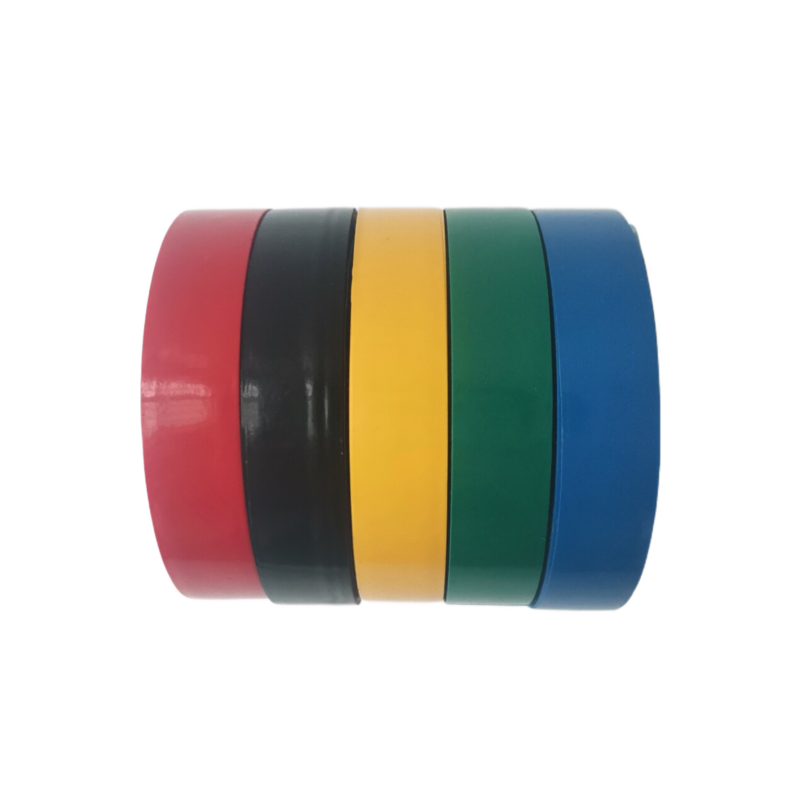The Various Types of Insulation Tape
Insulation tape is an essential component across a myriad of industries, including electrical, automotive, and construction. It is specifically designed to insulate electrical wires and other conductive materials, thus preventing electric shock, shorts, and fires. While many might assume that all insulation tape is created equal, in reality, there are various types, each with its unique features and applications. Understanding these different types can help you select the most suitable product for your specific needs.
1. PVC Insulation Tape
Polyvinyl chloride (PVC) insulation tape is perhaps the most commonly used type. It is readily available in many colors and is highly versatile. PVC tape is known for its excellent insulating properties, good adhesion, and resistance to abrasion and humidity. It is ideal for general wiring tasks, both indoors and outdoors, and is often used in professional electrical installations. In addition to its insulating capabilities, PVC tape also provides protection against environmental factors and is made to withstand high temperatures.
2. Vinyl Insulation Tape
Similar to PVC tape, vinyl insulation tape offers robust insulation and moisture resistance. However, it typically has better stretchability, which makes it easier to apply in tight spaces. Vinyl tape is known for being durable and resistant to fading, making it an excellent option for outdoor applications where prolonged exposure to sunlight may occur. This type of tape is often favored for wire harnessing and repair work where flexibility is an advantage.
Rubber insulation tape is particularly effective for high-voltage applications, as it provides excellent electrical insulation. It has a unique rubber-based adhesive that allows it to provide a secure and long-lasting bond even in extreme temperatures or under significant stress. Rubber tape is often used in the electrical repair and maintenance field, particularly for insulating electrical joints and connections. Its conformability allows it to wrap snugly around wires and irregular shapes, ensuring thorough insulation.
insulation tape types

4. Mastic Insulation Tape
Mastic insulation tape is a specialized type used primarily for insulation in HVAC systems. Made from a rubber-based mastic material, it provides a thick, sticky layer that adheres well to surfaces, effectively sealing out air and moisture. This type of insulation tape is ideal for applications requiring high thermal resistance, as it helps maintain energy efficiency in heating and cooling systems. Its application is especially common in duct sealing and insulating refrigeration systems.
5. No-Shrink Insulation Tape
As the name suggests, no-shrink insulation tape is designed to maintain its size and shape even under extreme conditions. This tape is particularly useful for bundling and insulating cables in automotive and marine applications, where exposure to various environmental elements is expected. It is known for its weather-resistant properties, making it an excellent choice for outdoor installations.
6. Self-Fusing Silicone Tape
This innovative tape does not have any adhesive; instead, it relies on the fusion of the silicone material to create a secure bond. When twisted and stretched, the tape fuses together, providing a waterproof, air-tight seal that is perfect for electrical tasks. Self-fusing silicone tape is UV resistant and can withstand extreme temperatures, making it suitable for applications in both high and low environments. It is commonly used in emergency repairs, where a quick and efficient solution is required.
Conclusion
Choosing the right type of insulation tape can make a significant difference in the safety and durability of your electrical projects. Whether you require PVC tape for general use or specialized options like mastic or self-fusing silicone tape for unique applications, understanding the distinct characteristics of each type will help you make an informed decision. Always consider factors such as the environment, voltage requirements, and intended use to ensure optimal performance and safety. With the right insulation tape, you can effectively safeguard your projects from potential electrical hazards.
-
XIANGFAN Rubber Tape-Ultimate Solutions for All Your Insulation NeedsNewsJun.24,2025
-
XIANGFAN Rubber Tape-Protection for Industrial and Residential ApplicationsNewsJun.24,2025
-
XIANGFAN Rubber Tape: Superior Safety and Sealing for Demanding EnvironmentsNewsJun.24,2025
-
XIANGFAN Rubber Tape: Reliable Solutions for Every Electrical ChallengeNewsJun.24,2025
-
XIANGFAN Electrical & Industrial Tape: Powering Reliability Across IndustriesNewsJun.24,2025
-
XIANGFAN Electrical & Industrial Tape: Excellence in Every ApplicationNewsJun.24,2025
